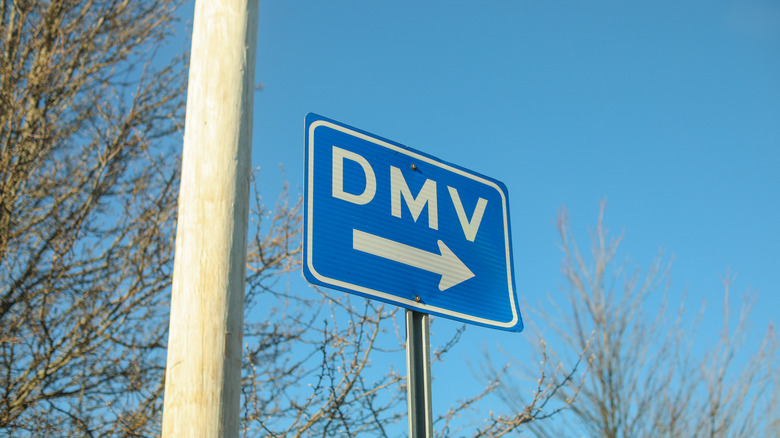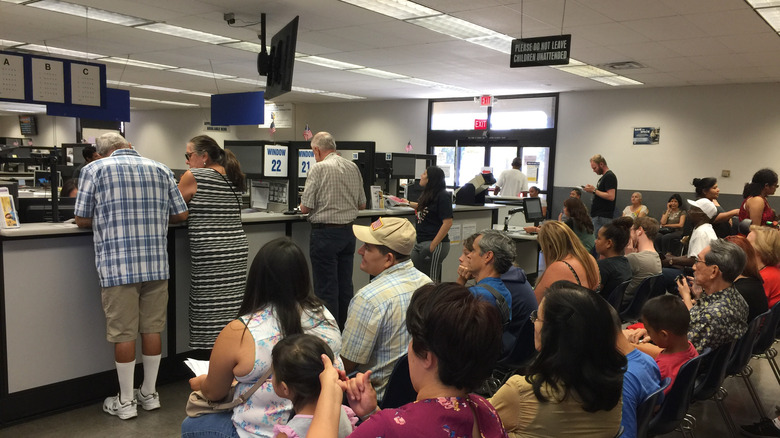You've Been Warned: Using A Credit Card At The DMV Is A Waste Of Money
Spending money at the DMV feels routine. However, when you swipe a card, you actually end up paying more due to the extra fees associated with credit card payments. California adds 1.95% to most online credit and debit DMV charges, while North Carolina charges 1.85% online and 2% at kiosks. That small percentage is real money you could save. Let's say you pay a $300 registration renewal with a card (as you might have to do in states with expensive car registration), the card fee would then add $5.85 online, $6.30 at a kiosk — enough to buy an entire McDonald's McValue meal or even an extra gallon or two of gas at Costco.
Across the country the rules are different. In Colorado, for instance, an online plate renewal adds 75 cents plus an additional 2.25% of the base fee, so a $100 renewal would end up costing $103.00. In Illinois, kiosk users pay $4.95 plus a 2.25% fee, whereas Florida's MyFlorida app adds a flat $4 for each credit card transaction. Missouri adds 2% plus 25 cents, while New York and the District of Columbia accept credit cards for no additional fee. Massachusetts even forbids any surcharge above the listed price, while New Jersey allows a card fee only when it matches the processor's actual cost and the fee is clearly disclosed.
Avoid the credit card fee
To avoid these fees, simply skip the card reader. Missouri's Department of Revenue states that renewing plates online costs 50 cents when you use an e-check, compared to the 2% plus 25 cents associated with cards. Paying with cash or mailing a check don't add any extra charges either. In fact, a mailed renewal form generally comes with a tear-off stub you can use to send a check or money order. At in-person DMV offices, some states will send cash and check customers to the counter while directing card users to kiosks that add the fee. Ask for the staffed window to avoid a surcharge. Or, if you are using the DMV online, make sure to pick the no-fee bank transfer or ACH option as many state websites let you pay via your bank and routing information at no extra charge.
Furthermore, many card providers have specific fee policies. Visa allows merchants to add a fee only up to the lower of their actual processing cost or 3%, while Mastercard caps this at 4%. This extra charge also has to appear as a separate line on a receipt, so if you see a higher fee, or a hidden charge, point it out and ask for it to be fixed as soon as possible.

